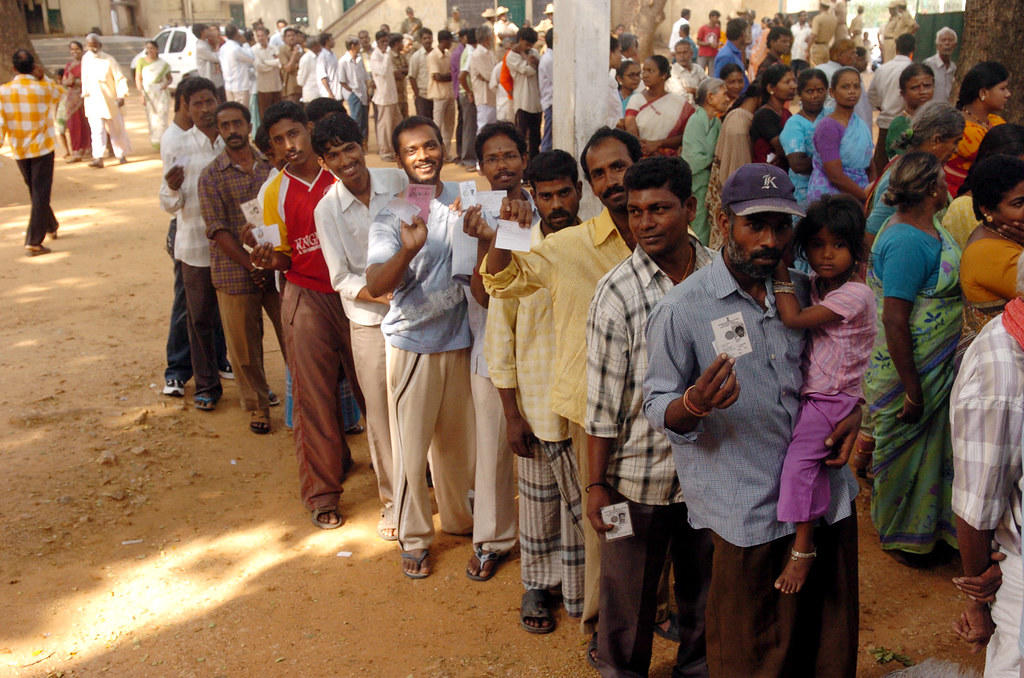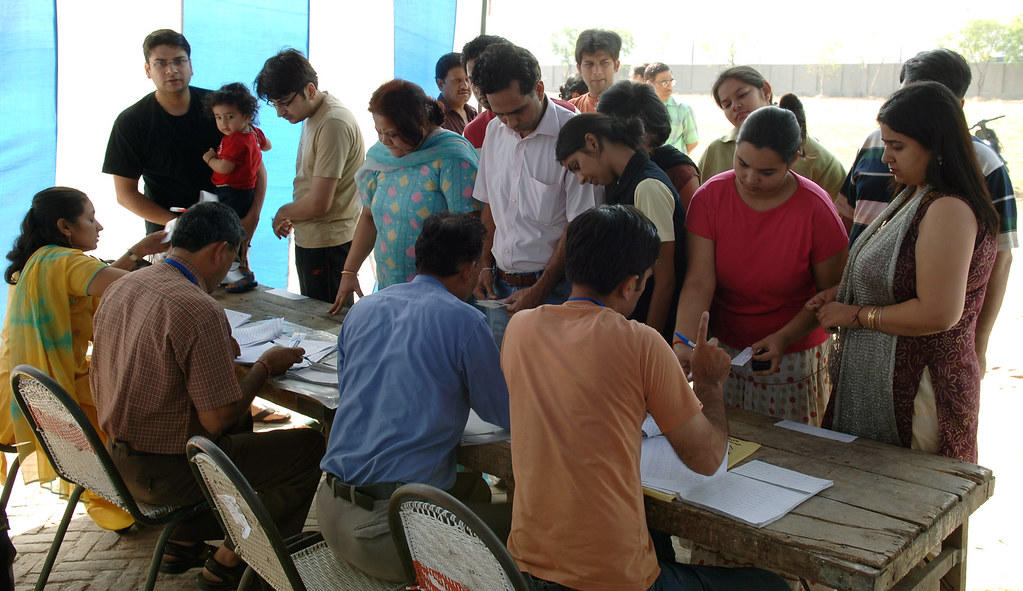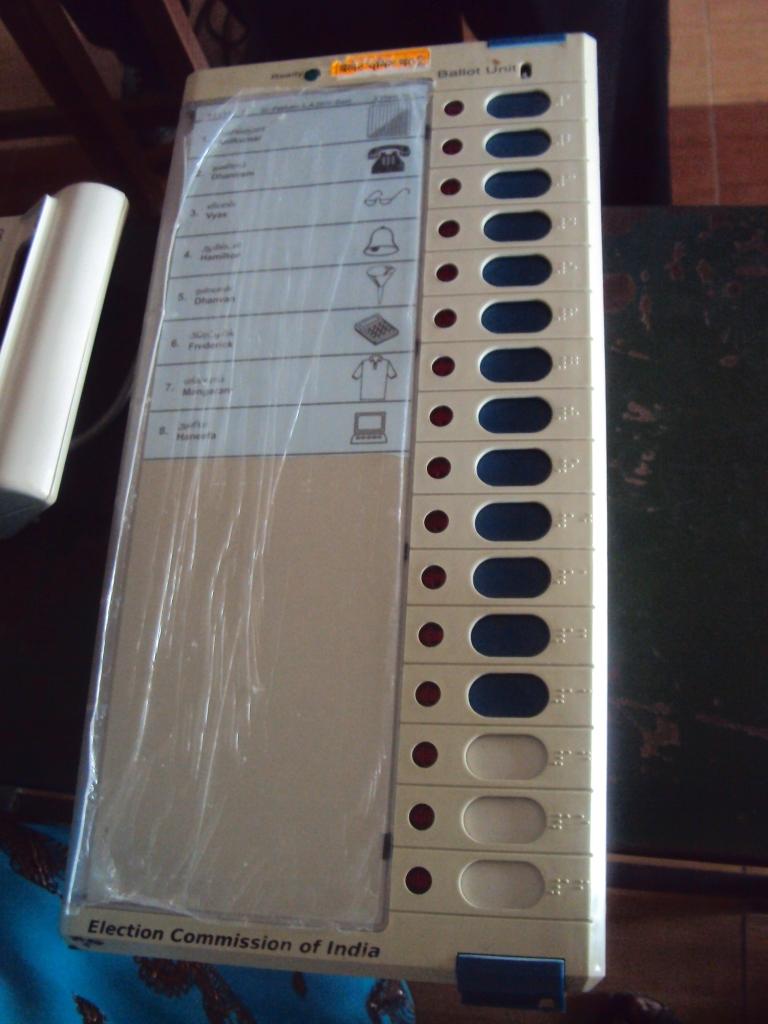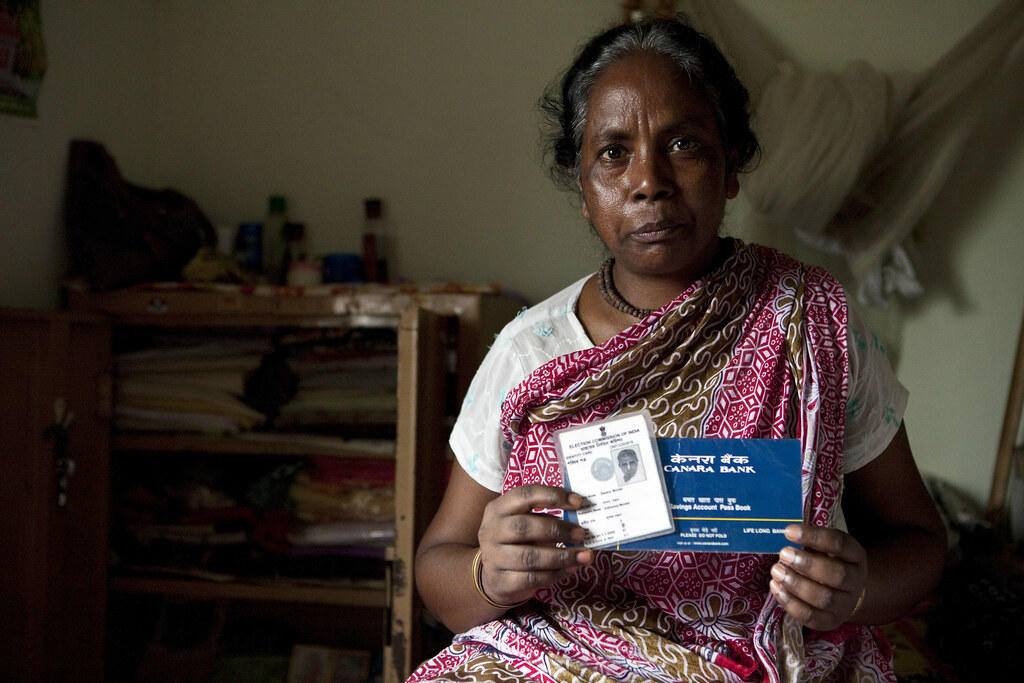As far as democracies go, India ranks first. Its citizens choose their quasi-federal government every five years in a direct election. Consistent, impartial, and free elections are mandated under the Indian Constitution, which can be accessed on the website of the Election Commission of India. The Representation of the People Acts of 1950 and 1951 address all matters on the conduct of elections and conflicts that arise after the election.
In an election, eligible persons can show their support for a specific candidate, choice, or outcome by casting a ballot. Either voting electronically or with paper ballots accomplishes this. An individual's ability to represent their neighborhood, region, or nation, and the final say in major policy choices, are all determined by the number of votes cast for a particular candidate. Our civic obligation is to vote for the best political party to lead the nation. A voter ID card, sometimes called an elector's photo ID card, is required to cast a ballot.

The Process of Voting
Democracy rests on the bedrock of voting, which is why it is so important in India's political system. Citizens can take part in decision-making and exercise their right to pick representatives through it. People can make their representatives accountable for the policies and acts they take by casting a ballot. Fair and transparent elections are made possible through voting, which promotes political and social equality. A government that represents the people's desires and goals can be more easily established in this way.

Voting gives people a chance to make their voices heard on important national issues and helps shape the future of our country. By using their right to vote, members of society's most vulnerable groups gain agency over issues that directly impact their daily lives. It encourages legislators to listen to their citizens and act on their concerns, which leads to a more accountable government. The democratic system gains credibility and legitimacy when a large number of eligible voters cast ballots. By casting a ballot, citizens fulfill a civic obligation and take part in the democratic process, both of which are essential to a nation's development.
Eligibility of Voters
Voting rights are guaranteed to all citizens of India who fulfill specific requirements. A list of all eligible voters in India is as follows:
- Voting in elections is open only to citizens of India.
- Foreign nationals, Non-Resident Indians (NRIs), and anyone else who is not a citizen cannot cast a ballot.
- In India, one must be at least 18 years old to cast a ballot.
- Voting rights are granted to all citizens who have attained this age or will do so by the qualifying date set by the Election Commission.
- To cast a ballot, an individual's name must be on the voter registration list maintained by their local government. Those lists are periodically updated and prepared by the Election Commission.
- Voters must be permanent inhabitants of the electoral district in which they intend to cast their ballots. Either they should be permanent residents of the district or have lived there for a minimum of six months.
- Voters must be of sound mind and able to make independent decisions before casting a ballot.
- People may not be able to vote if they are considered to be of unsound mind, or if they are disqualified by law because of a criminal offense, or if they have been declared bankrupt.
Note: Although the aforementioned standards are typically applicable, the Election Commission may establish additional regulations and standards for each election that voters must follow to cast their ballots.
Important Rules for Indian Voters
Essential components of India's electoral process include secrecy and guidelines for voters. Regarding voting regulations and confidentiality, here are some important points:
- The confidentiality of a voter's choice is guaranteed by the notion of secrecy, which is important to the voting process. Everyone has the right to vote anonymously, regardless of whether they know who the officials are or whether they know other voters.
- Voters are expected to keep their marked ballots and voting process secret while they are in the polling booth.
- Any attempt to bribe, threaten, or otherwise coerce voters into casting a ballot against their will is illegal. Every voter ought to be able to cast their ballot autonomously.
- Each registered voter is limited to casting a single ballot in any given election. It is against the law to vote under a false name or to cast more than one ballot.
- Inside the polling booth, voters are enjoined to refrain from using any electronic equipment, including cameras, cell phones, and others. To prevent the illicit recording or transmission of information linked to voting, certain items may be restricted.
- A valid photo identity document, such as a voter ID card, is required for each voter to cast a ballot. This aids in confirming their voting eligibility and confirming their identity.
- The Election Commission has published a Model Code of Conduct that voters are expected to follow. This code contains rules regarding election etiquette, ethics, and fair practices.
- Candidates and political parties should not be promoted or endorsed in any way by voters while they are in or near the voting booth. There is a designated area around each voting place where campaigning is prohibited.
- Voters are required to be disciplined, listen to poll workers, and wait patiently in line for their turn to cast their ballots.
- Voters are expected to adhere to all applicable election rules, regulations, and instructions that have been issued by various authorities, including the Election Commission.
Registering as a Voter in India
The Election Commission of India allows Indian nationals to register online on January 1, April 1, July 1, and October 1 of the electoral roll revision year. Indian citizens can register to vote online or offline.
Online Voter Registration
- Visit the Voter Services Portal.
- Select ‘Sign up’ in the top right corner of the homepage.
- Enter your mobile number, email, and captcha code and click ‘Continue’.
- Click ‘Request OTP’ after entering ‘First Name’, ‘Last Name’, ‘Password’, and ‘Confirm Password’.
- Click ‘Verify’ after entering the mobile and email OTP.
- Log in to the Voter services site by clicking ‘Login’ on the homepage, entering the mobile number, password, and captcha, then clicking ‘Request OTP’.
- Enter your cellphone OTP and click ‘Verify & Login’.
- Click ‘Fill Form 6’ on the ‘New registration for general electors’ tab.
- Fill out Form 6 with personal, relative, contact, Aadhaar, date of birth, address, and declaration information, upload the appropriate documents, and click ‘Preview and Submit’.
- Verify your information and click ‘Submit’.
Offline Voter Registration
- Find Form 6 at the Booth Level Officer (BLO) office or download it from the Voter Services Portal by clicking ‘Download’ on the ‘New registration for general electors’ page.
- Complete Form 6.
- Send the BLO the completed form and papers.

Verification Process
After receiving Form 6 online or offline, the Booth Level Officer verifies. The BLO checks the address proof document under Election Commission standards to ensure validity. If the officer finds anomalies during verification, the application will be canceled and the applicant will not receive a Voter ID. If so, the applicant must reapply. The applicant can get a valid Voter ID if the verification process is consistent. The Voter ID is usually mailed or emailed to the address within 15–21 days of verification.
Documents Required for Voter Registration
- Address Proof:
- Water, electricity, and gas expenses within a year
- Current nationalized, scheduled bank or post office passbook
- Registered rental or lease agreement (for tenants)
- Landowners' registered sale deed
- Aadhar
- Indian passport
- Land records, including KisanBahi, from the revenue department
- Date of Birth Proof:
- CBSE, ICSE, or State Education Board class X or XII certificates with birthdates
- Local, municipal, or Registrar of Births and Deaths birth certificate
- Driving licence
- Aadhar
- PAN card
- Indian passport
- Two recent passport-sized photos (taken within 6 months of submission)
Forms Required for Voter Registration
The following voter registration forms meet various needs:
- Form 6: Indian people over 18 can register to vote or apply for a Voter ID card using this form.
- For a Voter ID, an NRI who is a citizen of India and has not gained citizenship of another nation must fill out Form 6A.
- Form 6B links Aadhaar with Voter ID.
- Form 7: To remove a name from the electoral roll.
- Form 8: To change, add, or correct Voter ID entries, use this form.
Voter Registration Status
- Visit the Voter Services Portal.
- Click ‘Login’.
- Click ‘Request OTP’ after entering the mobile number, password, and captcha code.
- Enter OTP and click ‘Verify and Login’.
- Select ‘Track Application Status’.
- Enter reference number, state, and ‘Submit’.
- The screen displays the voter registration status.
The reference ID is your voter registration application's unique number. When you submit Form 6, you will receive an acknowledgment slip with the reference ID. You can check voter registration status by visiting your local Electoral Registration Officer (ERO) and providing your name, date of birth, and residence. ERO checks and provides voter registration status.

Electronic Voting Machines replaced paper ballots to streamline voting, eliminate fraud, and speed up results. VVPATs improve voting transparency and integrity. These machines print and verify voter votes, which can be compared against electronic votes. In 2013, voters could choose "None of the Above" (NOTA) to indicate their disapproval of all constituency candidates. According to Articles 324 to 329 of Part XV of the Indian Constitution, every citizen 18 or older can vote. Every qualified voter can vote unless there's a legitimate cause.
Since 2011, National Voters' Day has been celebrated on January 25 to commemorate the Election Commission of India's founding on January 25, 1950. NVD is a celebration to encourage, facilitate, and optimize voter registration, especially for new voters. The day educates people and encourages educated voting. This year's NVD theme, 'Nothing Like Voting, I Vote For Sure', expresses voters' desire to participate in elections. ECI honors 75 years of national service. Remember that voting is our great right, and as proud Indians, we should always exercise it!
Voters Guide - Conclusion
Any Indian citizen living in the country who is 18 years or older can register as a General Voter.
To enroll, fill out Form 6 online at https://www.nvsp.in/ and upload all the required documents.
Please go to https://electoralsearch.in/ to check if you are registered to vote. If your name is found in the list, you can vote. If not, you will need to register at https://www.nvsp.in/
You have the option to enroll offline by filling out two copies of Form 6, which is available free of cost at the offices of Electoral Registration Officers, Assistant Electoral Registration Officers, and Booth Level Officers. You can apply along with relevant documents in person to the Electoral Registration Officer, Assistant Electoral Registration Officer, or by post.
Alternatively, you can also hand it over to the Booth Level Officer in your polling area. For assistance, you can call 1950.
Résumer avec l'IA :











